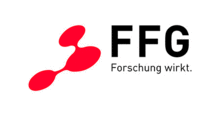UserGrids
Centered Smart Control and Planning of Sustainable Microgrids

Project Description
Climate protection requires a massive reduction in greenhouse gas emissions caused by the building stock. The new possibilities of digitalization promise to enable the targeted operation and planning of energy systems with highly fluctuating usage and large shares of volatile energy sources through "Digital Energy Services" (DES).
In the UserGRIDs project, methods are being developed and tested to support the user-centered and efficient operation and planning of neighborhood energy systems. The basis for this is the INNOVATION DISTRICT INFFELD. This research and teaching campus, with 125,000 m² of gross floor area and a mix of office, teaching, and project-driven laboratory operations, is an ideal example of highly fluctuating usage requirements.
The foundation is an information and communication technology (ICT) platform where all data relevant to energy performance converge. This includes measurement data from energy systems (temperatures, outputs, etc.) and data from other digital systems (room occupancy, weather data, price signals, etc.). The platform continuously provides data to the DES "energy management" and "energy structure planning" and transmits their feedback back to the campus. Additionally, users are enabled to interact with the DES in real-time.
The DES energy management integrates the regulations of the buildings into a comprehensive, self-learning overall concept. User data is incorporated into the system's forecasts and objectives. The goal is an emission-minimized economic operation through optimal management of storage and integration of volatile sources. External communication ensures intelligent integration into higher-level urban supply systems.
In energy structure planning, detailed models of the buildings' energy systems and the overarching campus infrastructure are developed, validated, and used for evaluating structural developments. All stakeholders are involved, and key performance indicators (KPIs) are defined. Simulations assess the KPIs of different development variants.
Both system transformations, such as the inclusion of energy storage or the replacement of energy technologies, and the expansion of photovoltaics on campus are evaluated. The foreseeable growth to 185,000 m² of gross floor area is also analyzed.
The developments are formulated as model solutions that serve as the basis for developing business models. The INNOVATION DISTRICT INFFELD sees itself as a pioneer in the use of new DIGITAL ENERGY SERVICES to enhance user satisfaction in an urban district, optimally regulate the operation of the energy system, and consistently advance the expansion towards a zero-emission district.
Project Duration
03/2021-02/2024
Project Management
Technische Universität Graz, Institut für Wärmetechnik
Project Partners
Technische Universität Graz, Institut für Bauphysik, Gebäudetechnik und Hochbau
EQUA Solutions AG
Bundesimmobiliengesellschaft m.b.H
Energie Steiermark AG
EAM Systems GmbH
BEST - Bioenergy and Sustainable Technologies GmbH
FRONIUS INTERNATIONAL GmbH
Funding
The research project UserGRIDs is supported by the Austrian Research Promotion Agency (FFG) as part of the 3rd FFG Model Region Energy Call.

The UserGrids project is part of Green Energy Lab, a research initiative for sustainable energy solutions under the Austrian innovation campaign "Model Region Energy" by the Climate and Energy Fund.

